Recommendation on the Ethics of Artificial Intelligence (UNESCO, 2021)
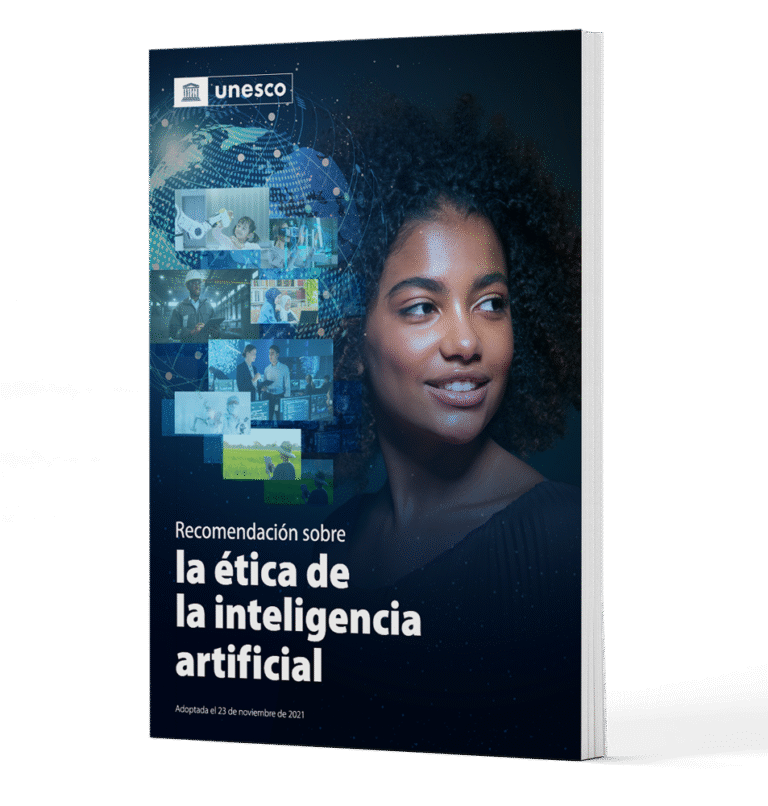
Its purpose is to serve as a basis for putting AI systems at the service of humanity, societies, the environment, and ecosystems, as well as preventing harm. To this end, it identifies a set of values and principles and 11 areas of policy action, for which concrete tools and recommendations are proposed to implement these principles and values.
View Document
Artificial Intelligence and Digital Transformation Competencies for Civil Servants (UNESCO, 2022)

It presents the key competencies for AI and digital transformation required in the public sector, with the aim of guiding public servants, international organizations, and regional and national actors to support capacity development efforts.
View Document
Readiness Assessment Methodology: A Tool of the Recommendation on the Ethics of Artificial Intelligence (UNESCO, 2023)
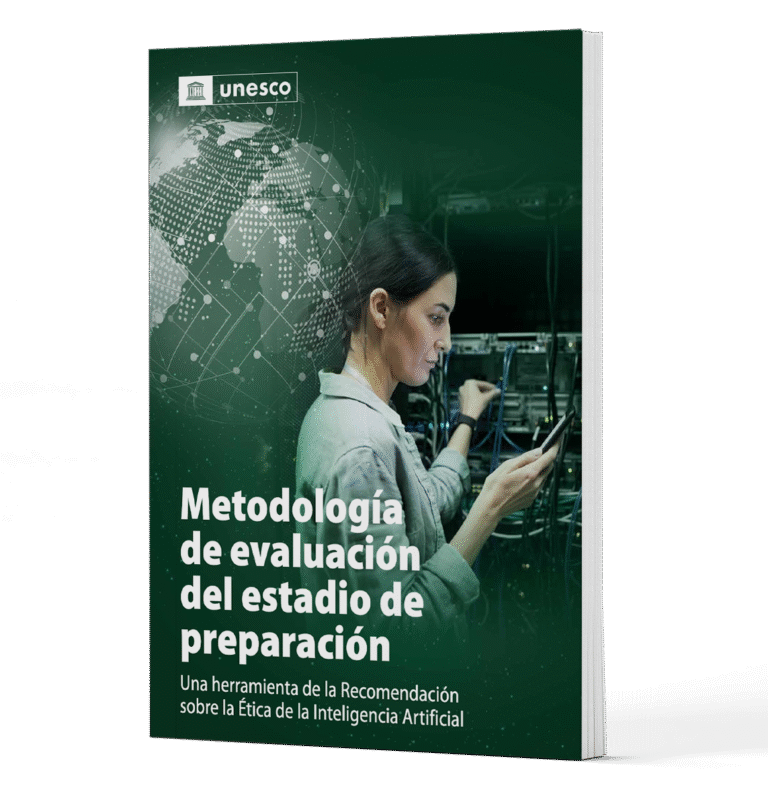
It offers a methodological approach based on quantitative and qualitative questions aimed at gathering information on various aspects of a country's AI ecosystem, including legal and regulatory; social and cultural; economic; scientific and educational; and technological and infrastructure aspects.
View Document
Ethical impact assessment: a tool of the Recommendation on the Ethics of Artificial Intelligence (UNESCO, 2023)
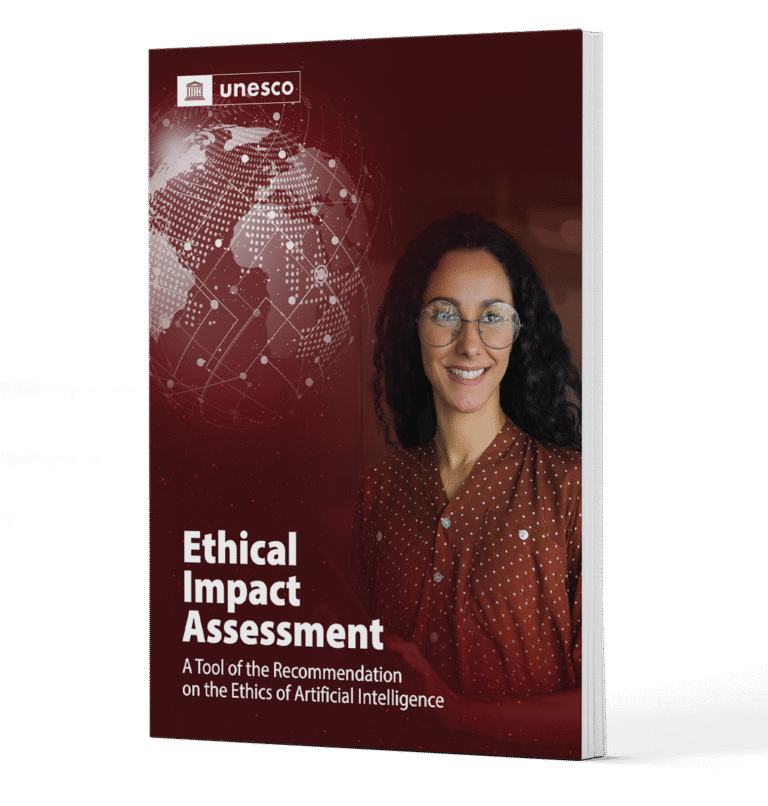
Its purpose is to serve as a basis for putting AI systems at the service of humanity, societies, the environment, and ecosystems, as well as preventing harm. To this end, it identifies a set of values and principles and 11 areas of policy action, for which concrete tools and recommendations are proposed to implement these principles and values.
View Document
Report on the application of the Readiness Assessment Methodology (RAM) – Chile (UNESCO, 2023)
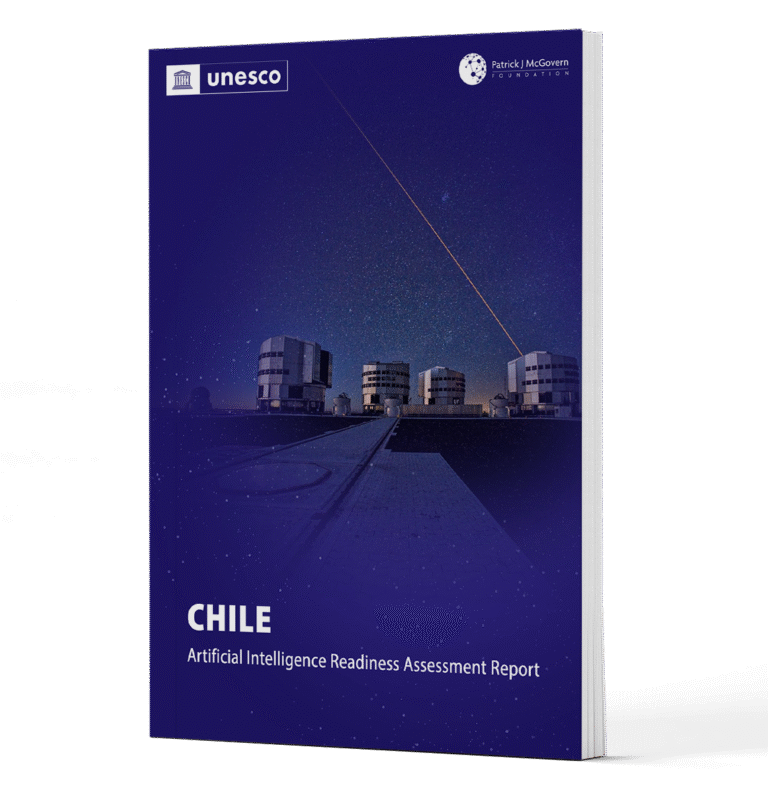
It analyzes the country's readiness to implement AI ethically and responsibly for all its citizens, highlighting the required institutional and regulatory changes, as well as the necessary reforms at the level of public policy and capacity building.
View Document
Foundation Models such as ChatGPT through the prism of the UNESCO Recommendation on the Ethics of Artificial Intelligence (UNESCO, 2023)
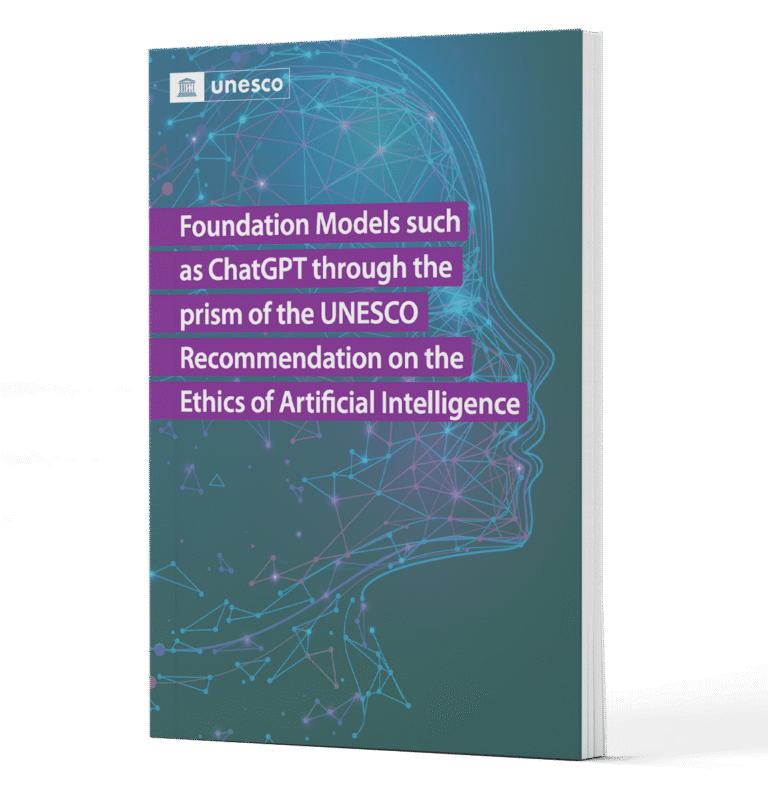
It aims to demonstrate how the Recommendation on the Ethics of Artificial Intelligence can help identify and clarify key ethical concerns related to foundational AI models such as ChatGPT, and provide a procedural framework for addressing and mitigating these concerns.
View Document
Report on the application of the Readiness Assessment Methodology (RAM) – Dominican Republic (UNESCO, 2024)
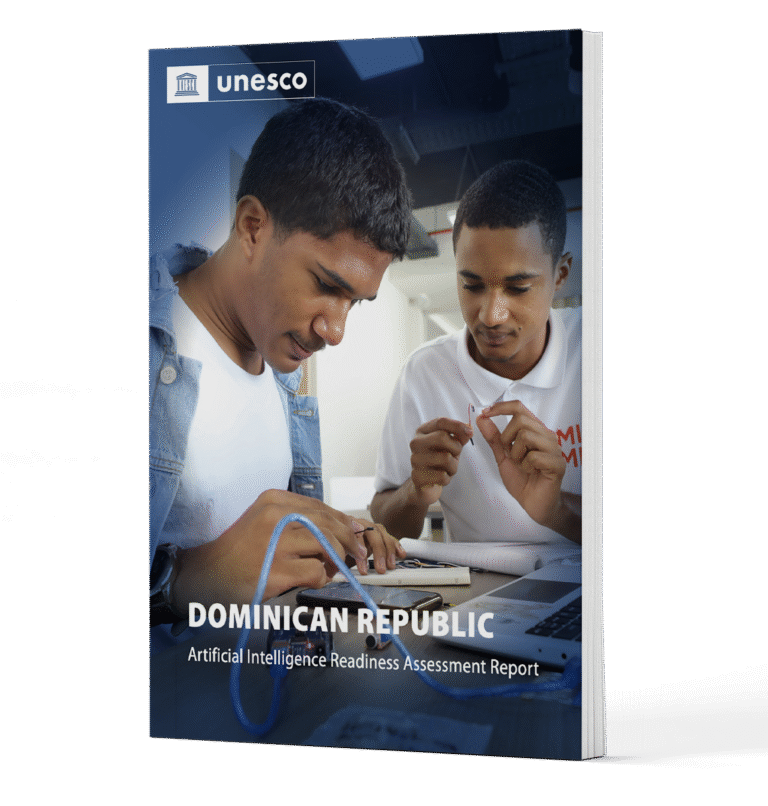
Assesses AI readiness by analyzing infrastructure, governance, research, and ethical frameworks using UNESCO's methodology. It identifies policy strengths that foster sustainable, inclusive, cooperative, and capable AI development across the public and private sectors.
View Document
Report on the implementation of the Readiness Assessment Methodology (RAM) – Uruguay (UNESCO, 2024)
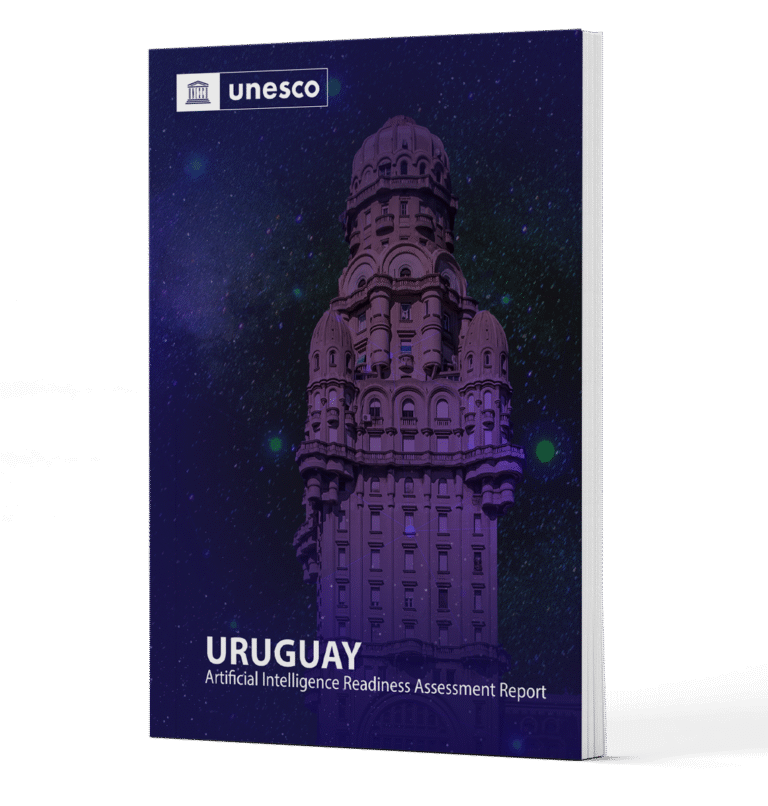
It analyzes the country's readiness to implement AI ethically and responsibly for all its citizens, highlighting the required institutional and regulatory changes, as well as the necessary reforms at the level of public policy and capacity building.
View Document
Caribbean Artificial Intelligence Policy Roadmap (UNESCO, 2024)
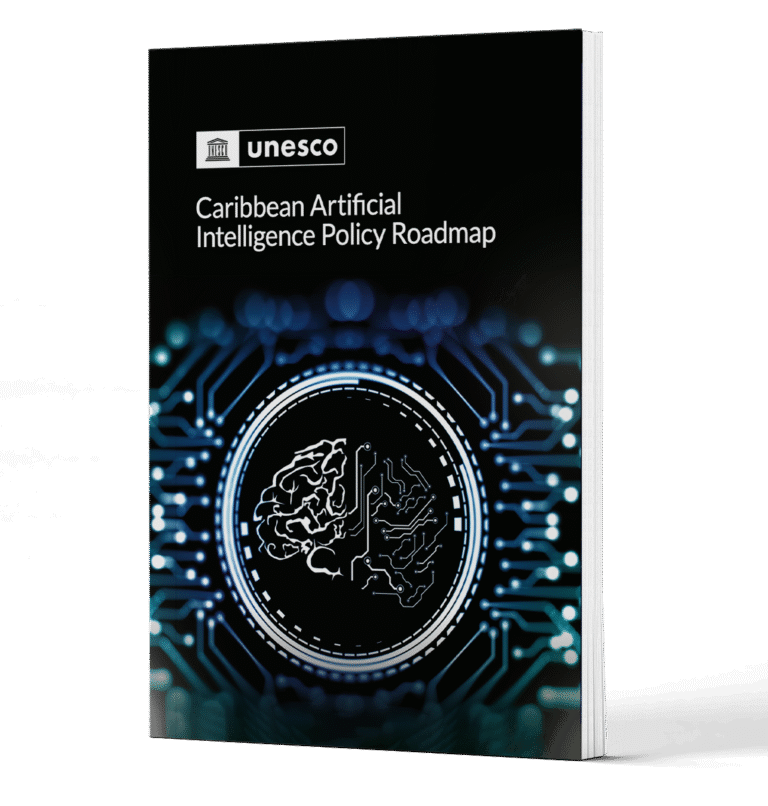
It presents a framework for policy development and regional collaboration in the Caribbean based on four pillars: Culture and Creativity; Governance and Transformation; Education and Upskilling; and Resilience and Sustainability.
View Document
ExperiencIA: Data and Artificial Intelligence in the Public Sector (CAF, 2021)
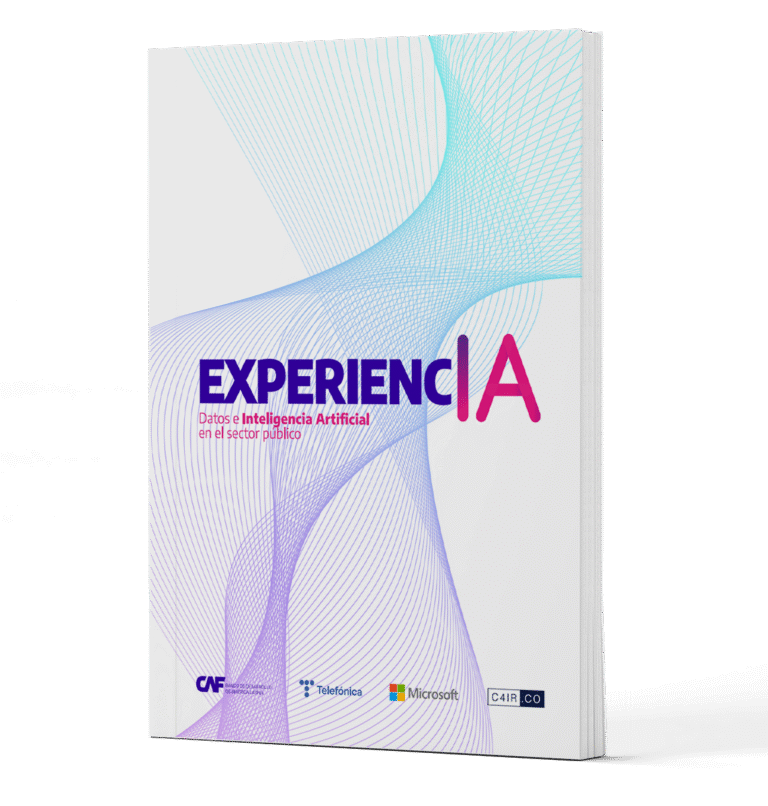
It analyzes a set of cases from the LAC region in which the application of AI can contribute to improving the efficiency of the State in the services it provides to citizens in various sectors, including health, justice, and education. The document is conceived as a practical guide to guide regional leaders in their search for solutions to public problems.
View Document
International best practices in digital workforce training: a roadmap for Latin America and the Caribbean (CAF, 2021)
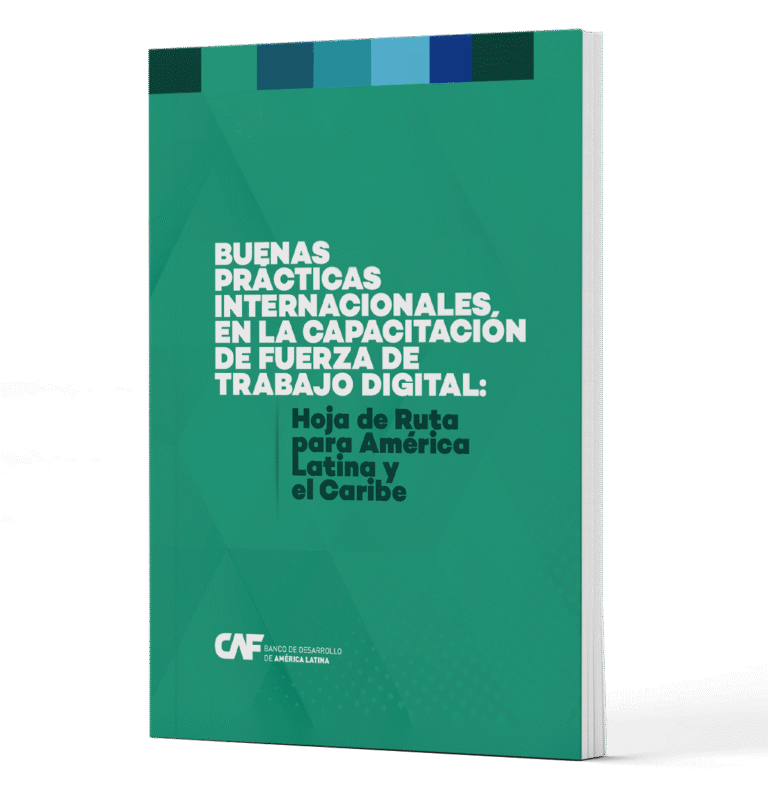
It summarizes the efforts made by Germany, Brazil, Chile, France, and Norway to implement training and development policies and plans that will enable them to address the changes brought about by the Fourth Industrial Revolution in labor markets.
View Document
Strategic and responsible use of artificial intelligence in the public sector in Latin America and the Caribbean (OECD/CAF, 2022)
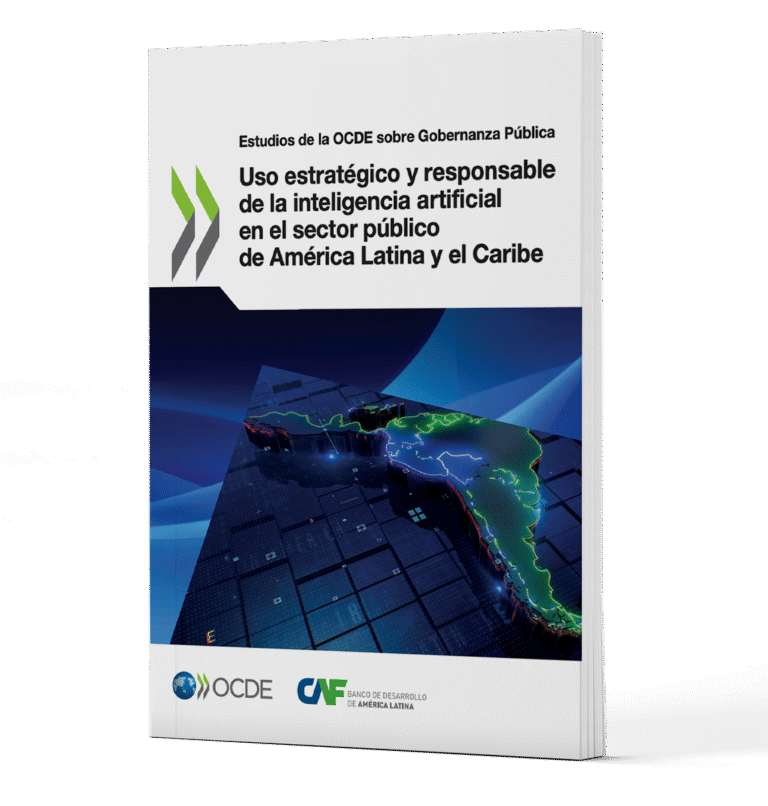
It seeks to understand the baseline of strategic actions and capabilities for AI in the public sector; identify specific approaches and actions for using this technology in building efficient, effective, and responsive governments; and promote collaboration in the pursuit of a regional vision for AI in the public sector.
View Document
Practical Guide "Designing Public Policies on Artificial Intelligence. Developing Enablers for Implementation in Latin America and the Caribbean" (CAF, 2024)
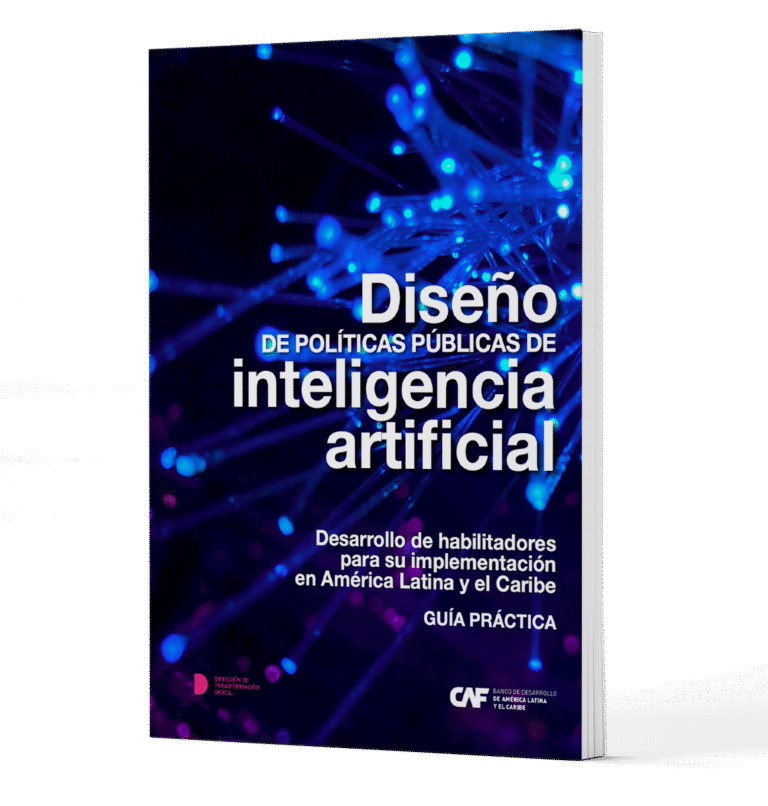
It presents methodological frameworks to support the participatory design of AI public policies in LAC, and the development and strengthening of enablers for their implementation. It also documents and showcases experiences, best practices, and lessons learned from CAF's support to countries in the region in terms of institutionality, regulation, ethics, talent, and data.
View Document
Latin American Artificial Intelligence Index (CENIA, 2024)

Index that provides quantitative and qualitative data on the state of AI advancement in 19 LAC countries, and which allows for the identification of achievements, gaps, and opportunities for improvement in AI ecosystems. It has been supported by both CAF and UNESCO in its two versions, and is a valuable source of information for countries in the region.
View Document
DO YOU HAVE A QUESTION
OR INQUIRY
ABOUT THE SUMMIT?
2024, Forum on the Ethics of Artificial Intelligence in Latin America and the Caribbean.
